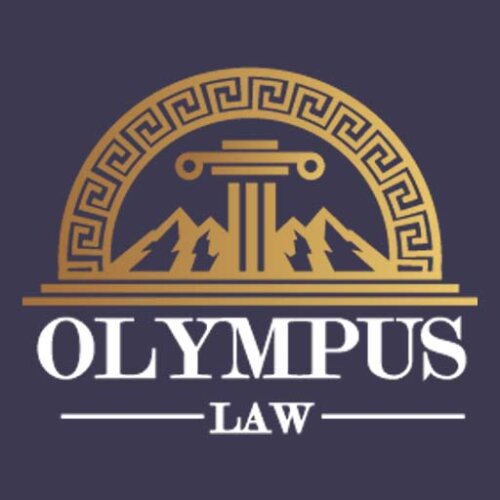Best Communications & Media Law Lawyers in Australia
Share your needs with us, get contacted by law firms.
Free. Takes 2 min.
Or refine your search by selecting a city:
List of the best lawyers in Australia
About Communications & Media Law in Australia
Communications & Media Law in Australia governs the regulatory framework around broadcasting, advertising, digital media, telecommunications, and copyright. It addresses the legal implications of content creation, distribution, and consumption across various media platforms. The field is influenced by rapid technological advancements, making it imperative to understand laws related to defamation, privacy, intellectual property, and regulatory compliance. The Australia Communications and Media Authority (ACMA) plays a crucial role in overseeing the industry by enforcing standards and rules aimed at ensuring a competitive, yet fair media landscape.
Why You May Need a Lawyer
Individuals and businesses may require legal assistance in Communications & Media Law for several reasons, including:
- Handling defamation claims or disputes related to false or damaging media coverage.
- Ensuring compliance with broadcasting and telecommunications regulations.
- Negotiating contracts for media production, distribution, and advertising.
- Protecting intellectual property rights in media content, such as copyrights and trademarks.
- Navigating issues related to privacy, data protection, and the use of personal data.
- Resolving disputes over misleading or deceptive advertising practices.
- Understanding and adhering to digital content and social media regulations.
Local Laws Overview
Communications & Media Law in Australia encompasses several key areas:
- The Broadcasting Services Act 1992 governs the operation of broadcasting services and sets out licensing requirements and content standards.
- Telecommunications Act 1997 manages issues related to telecommunications carriers, service providers, and customer rights.
- Defamation laws are state-based but share similar objectives across Australia, focusing on protecting personal reputation while balancing freedom of expression.
- Privacy laws, under the Privacy Act 1988, regulate the handling of personal information by organizations.
- Intellectual Property laws cover copyrights, trademarks, and patents to protect creations and innovations.
- The Australian Consumer Law addresses advertising and marketing's ethical and legal standards.
Frequently Asked Questions
What is defamation, and how is it regulated in Australia?
Defamation refers to damaging someone's reputation through false or misleading statements. In Australia, defamation laws are primarily state-based but provide similar protection across jurisdictions. Recent reforms aim to balance individuals' reputational rights with free expression.
How can I protect my intellectual property in media content?
Protecting intellectual property involves registering trademarks, copyrights, and sometimes patents for unique creations. Legal advice ensures that you secure these rights effectively and navigate any infringement issues.
What role does the ACMA play in media regulation?
The Australian Communications and Media Authority regulates broadcasting, radio communications, and telecommunications. It issues licenses, enforces industry codes, and ensures compliance with content standards to protect public interest and policy objectives.
When is advertising considered misleading under Australian law?
Advertising is misleading when it deceives or is likely to deceive the audience. The Australian Consumer Law prohibits false claims and sets standards for honest representation, and the ACCC enforces these laws.
What are the privacy laws affecting media and communications in Australia?
Privacy laws, primarily the Privacy Act 1988, govern how personal data is collected, used, and disclosed by organizations. Compliance requirements include transparency, consent protocols, and data security measures.
How do I address a breach of media and telecommunications regulations?
In case of a breach, it’s essential to consult legal counsel to assess the situation, respond to regulatory inquiries, and navigate any potential penalties or corrective measures.
Are there specific laws for online and digital content?
Yes, online and digital content are subject to laws covering defamation, consumer protection, and intellectual property. Social media platforms must also ensure adherence to relevant standards regarding harmful or illegal content.
What steps should businesses take for media compliance?
Businesses should conduct regular compliance audits, stay informed of regulatory changes, provide training for staff, and ensure clear contracts are in place with media partners to avoid legal pitfalls.
Can media content be used without permission under fair use exceptions?
Australia recognizes 'fair dealing' exceptions for purposes such as criticism, review, or news reporting, but specific conditions apply. Legal guidance is crucial to ensure these uses do not infringe copyright.
How can disputes in communication and media law be resolved?
Disputes can be addressed through negotiation, mediation, or litigation, depending on the issue's nature. Legal experts assist in determining the appropriate course of action and facilitate resolutions.
Additional Resources
Consider reaching out to these resources for further assistance:
- Australian Communications and Media Authority (ACMA) for media-related regulatory inquiries.
- Australian Competition & Consumer Commission (ACCC) for consumer law issues.
- The Office of the Australian Information Commissioner (OAIC) for privacy law concerns.
- The Intellectual Property Australia website for intellectual property rights and registration details.
- Professional bodies like the Law Institute of Victoria or the New South Wales Bar Association offer legal referral services.
Next Steps
If you require legal assistance in Communications & Media Law, consider the following steps:
- Identify your specific legal issue: Clearly define what area you need help with, whether it’s defamation, copyright infringement, regulatory compliance, etc.
- Consult with a specialist lawyer: Seek a lawyer with experience in media and communications law to provide targeted advice and representation.
- Prepare documentation: Gather all relevant documents, communications, and evidence related to your case for your lawyer’s review.
- Discuss strategy: Work with your lawyer to develop a suitable legal strategy, considering potential outcomes and implications.
- Stay informed: Keep abreast of changes to the law that might affect your situation or industry.
Lawzana helps you find the best lawyers and law firms in Australia through a curated and pre-screened list of qualified legal professionals. Our platform offers rankings and detailed profiles of attorneys and law firms, allowing you to compare based on practice areas, including Communications & Media Law, experience, and client feedback.
Each profile includes a description of the firm's areas of practice, client reviews, team members and partners, year of establishment, spoken languages, office locations, contact information, social media presence, and any published articles or resources. Most firms on our platform speak English and are experienced in both local and international legal matters.
Get a quote from top-rated law firms in Australia — quickly, securely, and without unnecessary hassle.
Disclaimer:
The information provided on this page is for general informational purposes only and does not constitute legal advice. While we strive to ensure the accuracy and relevance of the content, legal information may change over time, and interpretations of the law can vary. You should always consult with a qualified legal professional for advice specific to your situation.
We disclaim all liability for actions taken or not taken based on the content of this page. If you believe any information is incorrect or outdated, please contact us, and we will review and update it where appropriate.
Browse communications & media law law firms by city in Australia
Refine your search by selecting a city.

















